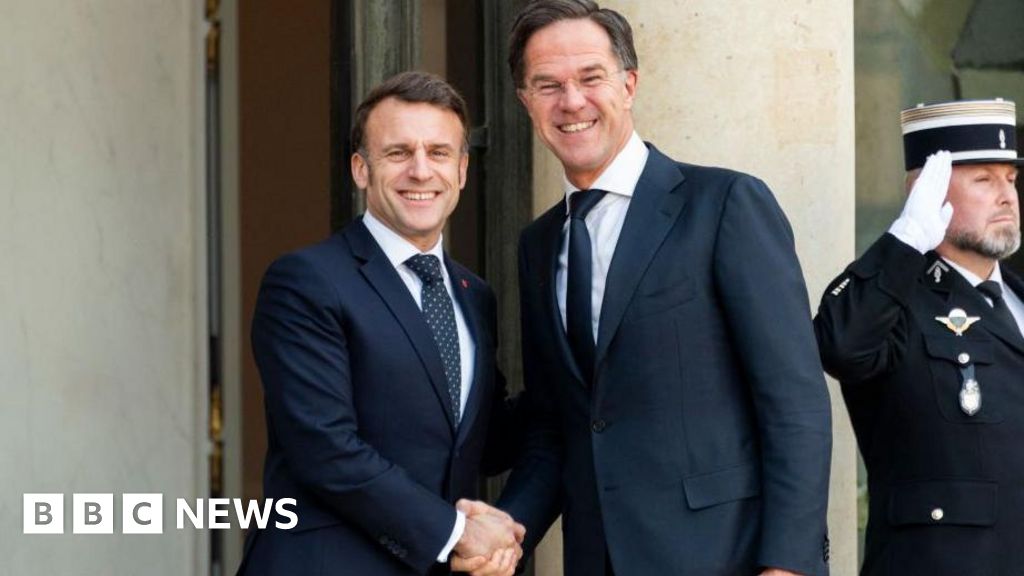Europes leaders divided over their tactics with Trump
- BBC News
French President Emmanuel Macron got straight on the phone to Donald Trump and, separately, to Ukraines Volodymyr Zelensky on Monday night, after fellow leaders of Europes biggest military powers left the glittering Élysée Palace in Paris.
What achievements could the French president boast? Was his emergency security summit a success?
What frustrates Europes detractors is theres rarely a clear answer. Different European nations speak with different voices, though they share many values and goals.
But in the current climate of black-and-white thinking prevalent in Washington and Moscow, where the world is divided into the powerful and the weak, European nuance can count as weakness.
Under that unforgiving spotlight, Mondays meeting failed.
Leaders had raised expectations. The summit dominated headlines as soon as it was called.
The head of the Wests defence alliance Nato, European Union chiefs and leaders of Europes most influential military nations scrambled together at speed.
They wanted to hijack Donald Trumps attention. To impress him. To elbow themselves a seat at the negotiating table at the peace talks he plans with Russias Vladimir Putin to discuss the future of Ukraine.
Europe was - it still is - smarting at being sidelined.
Ukraine is a European nation. Its fate will impact the whole continent.
Depending how bullish President Vladimir Putin emerges from any peace talks, Europes security services fear he could turn his attention to upending the sovereignty of other nations.
The Baltic states that neighbour Russia feel particularly exposed.
But leaders didnt help their case on Monday.
Yes, they say theyll spend more on their own defence, as Donald Trump demands. Despite domestic concerns about limited government budgets and a cost of living crisis.
The Paris meeting even discussed the possibility of sending European troops to Ukraine to oversee an eventual ceasefire - unthinkable even a few weeks ago for Europe.
Thats what the US president wants.
But ultimately those leaders in Paris failed to deliver a strong, united, sum-it-up-in-a-line-tweet response, that might have made the impatient businessman-cum-US president sit up and really take notice.
The reasons for this are many, despite the sense of urgency in Europe about Ukraine and European security more broadly.
A number of Europes leaders are furious at feeling they have to dance to Donald Trumps tune.
The frustration that poured out of the mouth of the normally phlegmatic German Chancellor Olaf Scholz was palpable when he left the Paris meeting.
"It is completely premature and a completely wrong time to have this discussion [on sending European troops to Ukraine] now. Im even a little irritated by these debates."
He insisted that there must be equal division between the US and Europe on responsibilities in Ukraine.
Scholz is likely to be out of a job soon. There are elections in Germany on Sunday, which he is widely expected to lose.
Hes had a couple of uncharacteristically emotional outbursts at home too of late, presumably under the strain.
Still, its important to note that he is far from alone amongst European leaders, who suspect Donald Trump is in a hurry to wash his hands of Ukraine and pivot his attention elsewhere. Perhaps China?
They worry too that the US president not only intends to deplete the defence umbrella his country has offered its European allies since the end of World War Two, but that Europe may now need to defend itself against him and his policies.
The tone the UK prime minister struck after the Paris meeting was in stark contrast to these darker European broodings.
He is openly keen to use the "special relationship" the UK hopes it still has with Washington as a bridge between Europe and the US.
One that Sir Keir Starmer is determined not to burn, telling voters at home that European security was in their national interest .
He appeared determinedly unfazed at Russias face-to-face preparation talks with the US in Saudi Arabia.
No date for that big-ticket summit between Trump and Putin has yet been set.
Sir Keir hopes to grab a window of opportunity to press Europes case when he heads to Washington for a meeting of his own with the US president next week.
The US must stay by its allies side, the Prime Minister has declared.
If it doesnt, Europes leaders will have to keep meeting till they can agree a way forward for Ukraine and their common security.
Should they fail again, long shadows over the stability of this continent will grow.